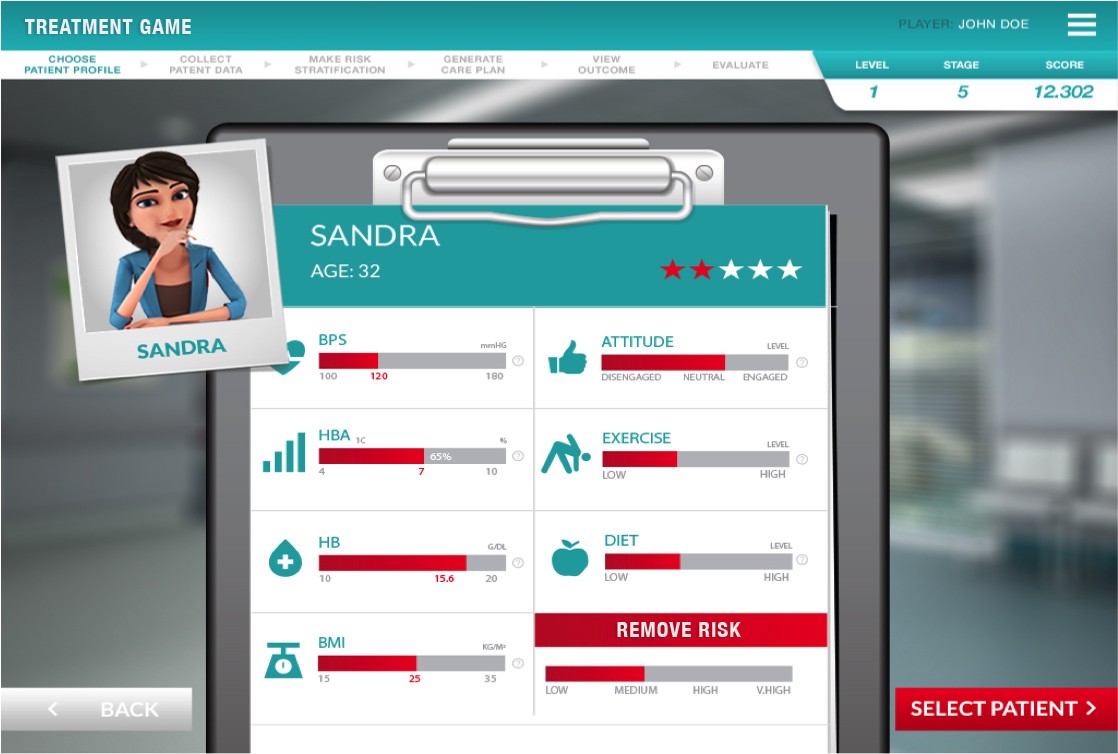We are serious people. By “serious people” I mean physicians, CEOs, shop assistants, civil servants, firemen and you and me. But do you play games in your professional life and beyond? I do.
Personally, I fall pray to to game mechanics all the time. Here are a few top of mind examples:
· I have chosen a less economical airplane ticket because it maintained my Gold level with Star Alliance, suppressing my left brain knowledge that lounge access and extra bag comprise a cover up for my right brain need for Status.
· I have entered more details on my Linkedin profile because I dislike being 90% complete. After all, I am an Achiever and 100% professional…
· I have assessed the cleanliness of the toilets at Changi Airport in Singapore. It is because I like pressing those nice, big smiley buttons, the opportunity to act Altruistically, and not because of a keen interest in toilet hygiene.
· I like the Reward of recognition at my local coffee shop … “ Hi Mads. Do you want the usual?”
· I hate Foursquare has stolen my badges, as I was having a silent Competition with a colleague on most airport check-ins.
Why is it interesting? We are emotionally engaged when we play. Emotions trigger more sensors in the brain than when we are merely rationally engaged. These emotions allow us to remember more and enhances the influence of the content infused in the gameplay. Why not use this “fact” to improve compliance, sales, education and more in business to business communication?
For this purpose, we need only a very simple understanding of how people are motivated. There are 6 levers. People like Rewards; Social & Professional Status; a sense of Achievement; they want to Express themselves and be heard; to be better than others; and to help others. Game mechanics can activate these levers as delineated below.

Below is a hypothetical case from the pharmaceutical industry. The underlying challenge is that physicians get bombarded with heavy written instructions and educational materials. We want to create a game concept which engages the physician to follow specific protocols in the treatment of disease. How could this be done? One avenue could be to use implicit game mechanics similar to those I fall pray to in my personal experience. Frankly, I think implicit game mechanics often would work better than explicit ones, as some people would not intellectually want to play a game. However, to ponder how games could enter professional education or marketing, here is the hypothetical Treatment Game.
The physician can choose between different “challenges” in the game. The challenges comprise different patient profiles. Some profiles are locked, thereby teasing the physician to proceed in the game to unlock the new level.

The individual challenge is unique — in this instance based on the different health signals of the patient in case.

The physician is at his virtual table. He has got access to a number of resources, including the patient and he needs to make his diagnosis and treatment plan within 5 minutes.

The patient utters his understanding of his disease, symptoms and other psycho-social factors of suffering from a chronic disease.

The physician can ask questions to help him define the treatment plan.

The game would of course need to include a leader board as well as the possibility to challenge other physicians. Also, the physician should be able to see the outcome of his treatment plan, thereby being able to ponder the influence of not following treatment protocols.

To make a game work it needs to be world class. The competencies to make a world class game are rarely within a pharmaceutical company or healthcare institution. This means that a game company or agency would need to do the strategy, concept and execution at an often prohibitive costs for project likely to be designated Test and Learn. However, a well orchestrated game, or the conscious use of game mechanics, would stand out in the midst of industry which almost entirely embraces conventional types of communication.

